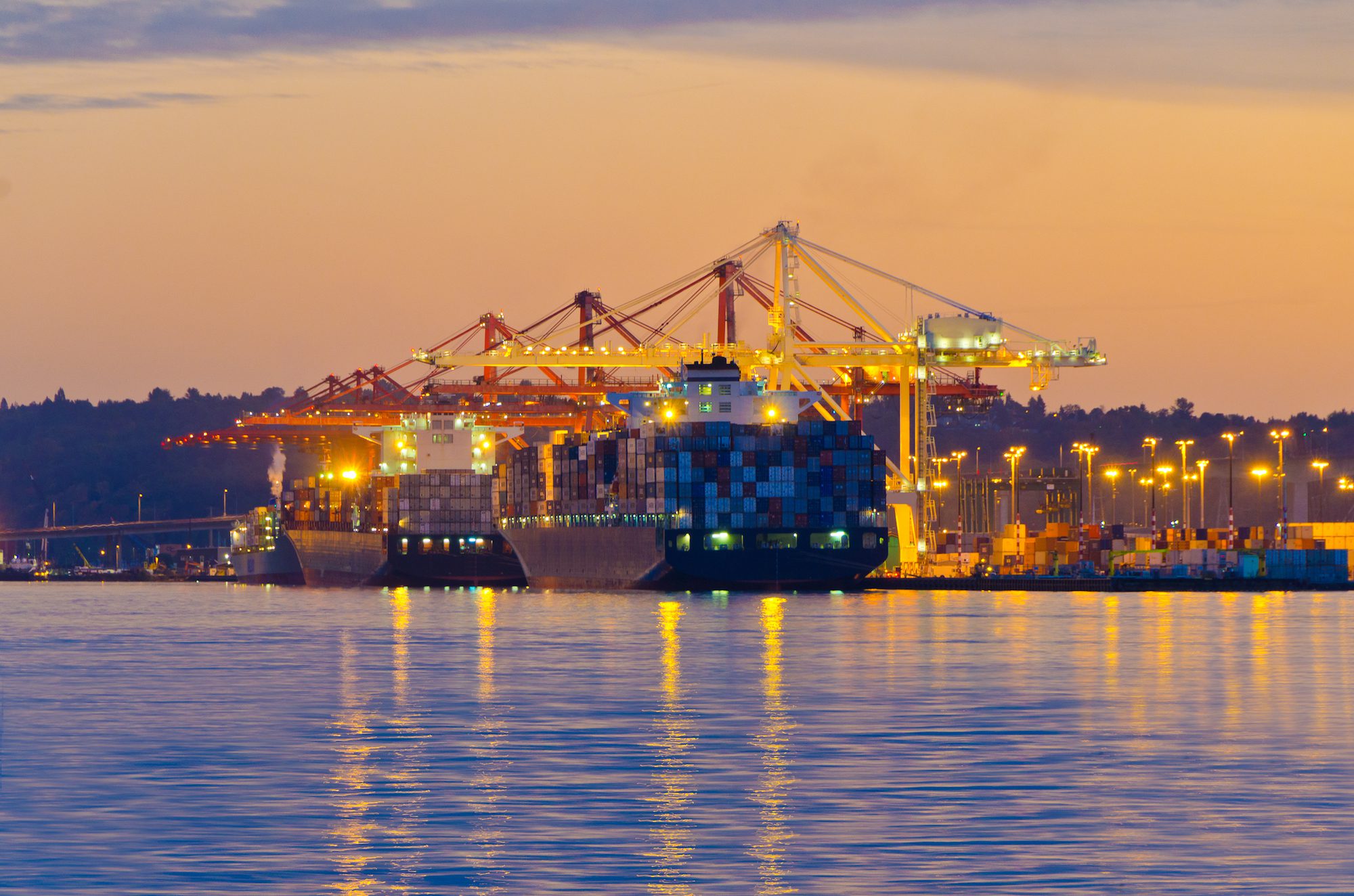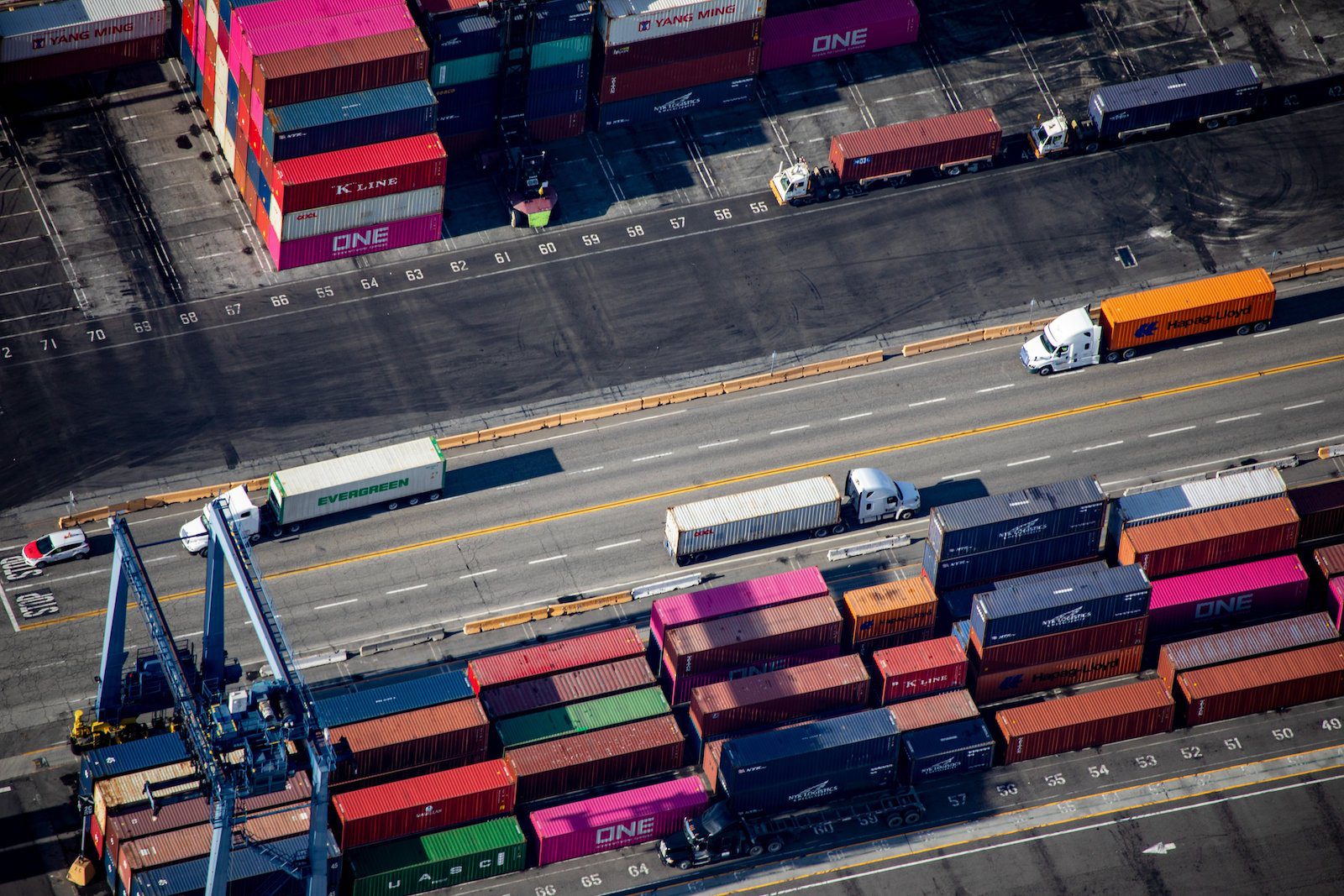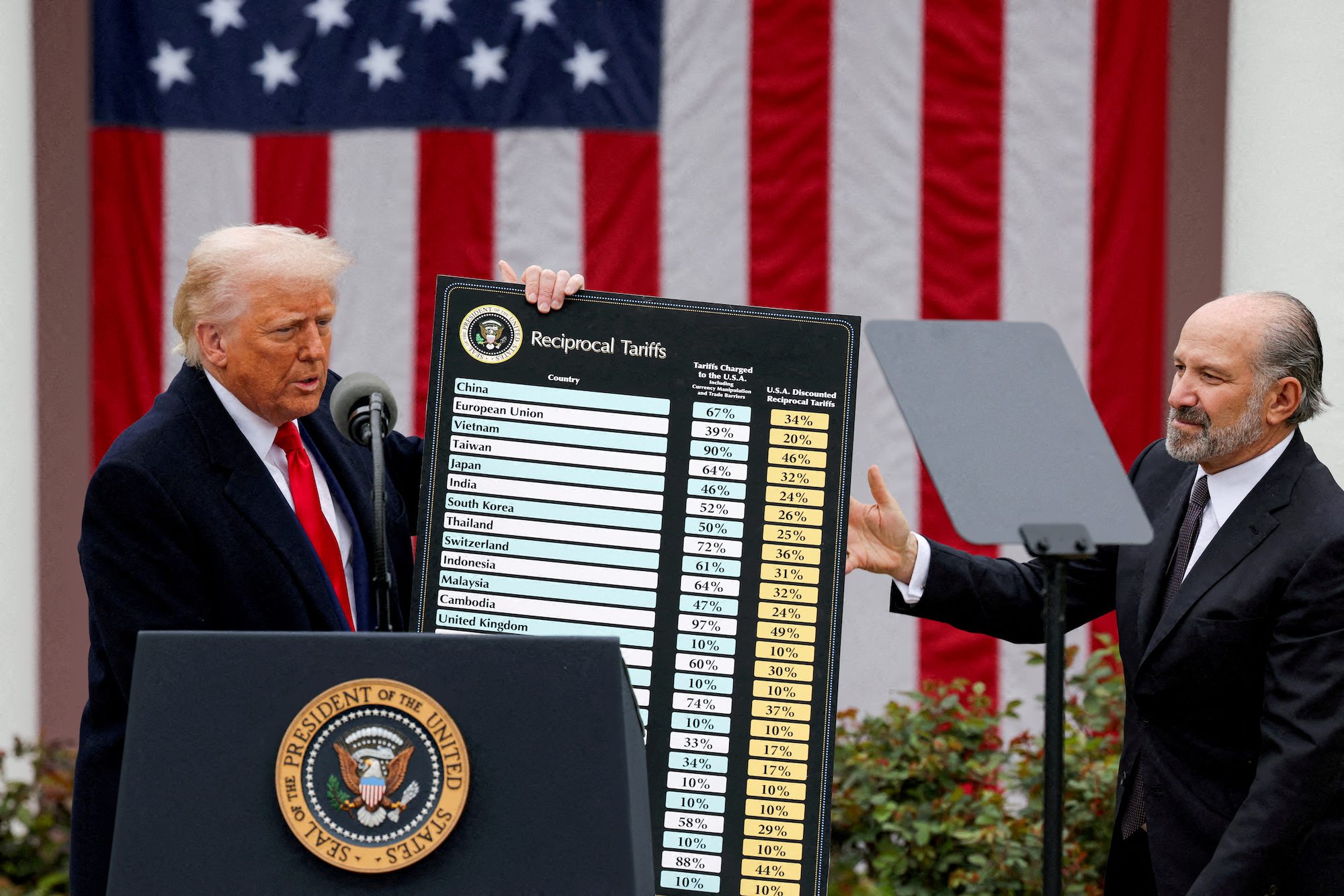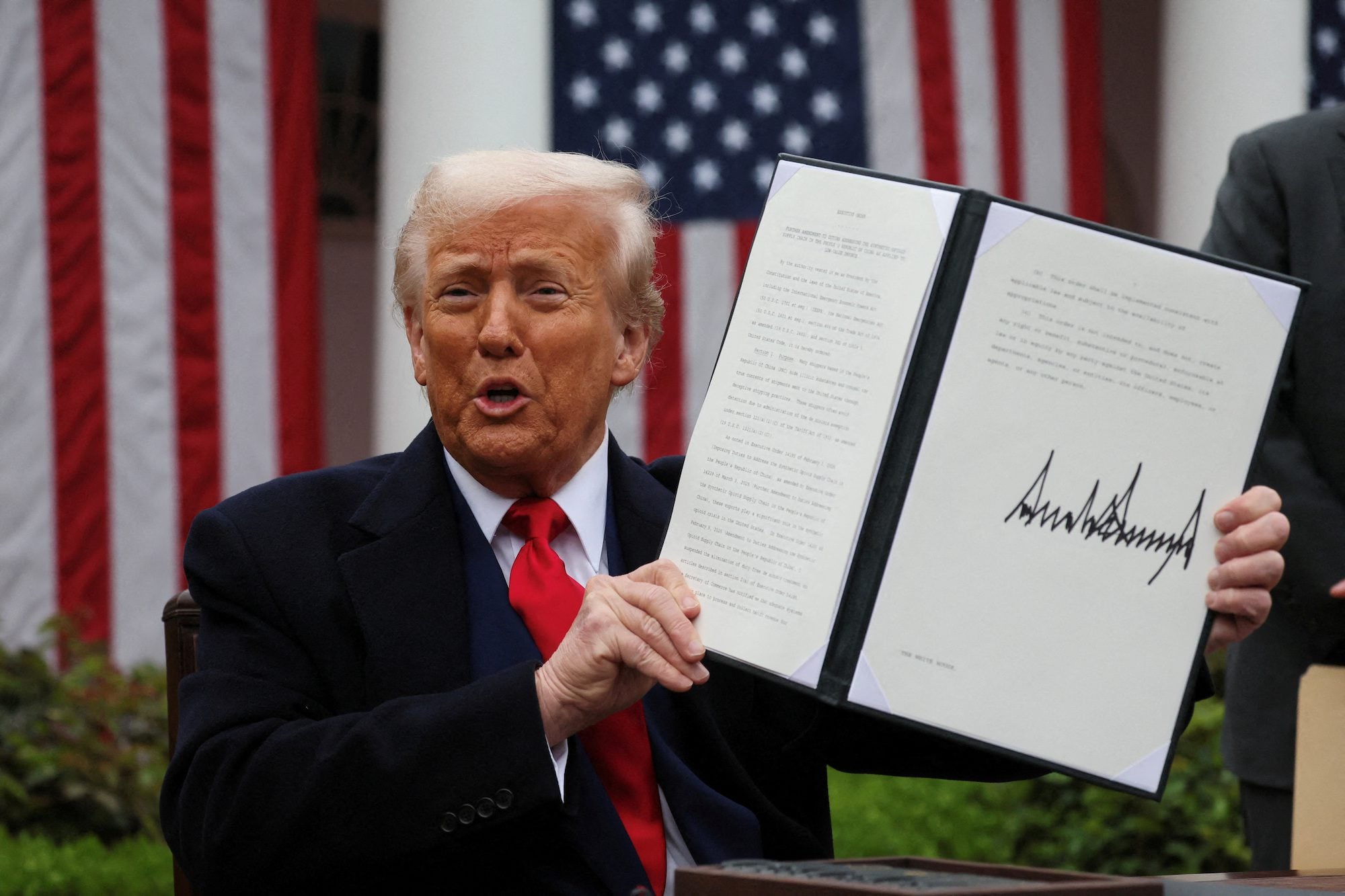U.S. Senators from California, Washington, and Oregon joined West Coast port leaders today in an urgent warning about severe economic consequences stemming from recently imposed tariffs that threaten to dramatically reduce containership traffic at major U.S. ports.
The concerns center around Trump’s April 2 “Liberation Day” tariff policies, which imposed a 145% tariff on Chinese imports, prompting China to retaliate with 125% counter-tariffs.
The Port of Los Angeles – America’s largest port – projects imports will drop by 35% within two weeks, with the Port of Long Beach anticipating similar declines. The sharp decline threatens to disrupt nationwide supply chains and potentially trigger broader economic consequences.
“Long Beach moves more than $300 billion in cargo every year to and from every congressional district, supporting 2.7 million jobs,” said Mario Cordero, CEO of the Port of Long Beach. “Due to the new trade policies, we are about to see a shift from cargo surge to cargo slowdown in the supply chain, and this will have a real impact on the American economy.”
Senator Alex Padilla (D-Calif.) highlighted the broader implications: “California’s Ports of Los Angeles and Long Beach are keystones for the success of not just our state’s economy, but our national economy. The drop in cargo volume caused by Trump’s tariffs will mean empty shelves when products don’t reach our stores, rising prices on everything from groceries to clothes to cars, and undoubtedly, more Americans out of work.”
Economic analysts at Apollo Global Management predict the slowdown will trigger a sharp decrease in trucking demand by mid-to-late May, potentially pushing the U.S. economy into recession this summer.
Senator Patty Murray (D-Wash.) stressed the urgency of the situation: “Our ports know better than anyone that supply chains do not reset in an instant. The time to reverse these Republican tariffs was the same day they were announced.”
The International Longshore and Warehouse Union (ILWU) has also voiced strong opposition to the new U.S.-China tariffs, warning of impacts on maritime workers and the economy.
“While free trade agreements have hurt American workers, this destructive tariff plan isn’t the solution,” stated the ILWU in an earlier statement of policy opposing the tariffs. “We need fair trade policies that protect jobs and reduce consumer costs, not arbitrary tariffs.”
Port activity is expected to decline significantly in the coming months, with the National Retail Federation predicting lower U.S. import volumes starting May, ending 19 months of growth.
“At the Northwest Seaport Alliance, we have already started to see serious impacts of the tariff war on our docks,” said Northwest Seaport Alliance Managing Member and Port of Seattle Commissioner, Ryan Calkins. “As our policy makers address economic and security concerns with international trading partners, we encourage them to tread carefully in order to preserve space for a commercial relationship.”
West Coast Senators are now urging their Republican colleagues to join them in asserting Congressional authority over tariffs to end the trade war and reverse the economic damage before it’s too late.
“Congress needs to take the matches away from the President who is setting fire to the economy,” said Senator Murray.
While today, it’s Western ports — we know it will only be a matter of weeks before the ripple effect causes pain across the nation,” concluded Senator Padilla.
Editorial Standards · Corrections · About gCaptain

 Join The Club
Join The Club











